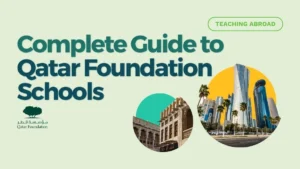Picture this: you’re an experienced teacher who is used to teaching native English speakers at home. You walk into a classroom full of eager foreign learners for the very first time.
The class is just as excited as you are, but despite this, something just isn’t clicking when the lesson begins.
After a bit of talking you notice them staring blankly at you with a look of confusion in their eyes. They still don’t seem to “get it”, no matter how many times you try to repeat or enunciate your voice (frustrating!).
Well, the reality is that teaching at home and teaching abroad (or online) to foreign language students is completely different.
There are many nuances to learning in a foreign language, just as many as there are to teaching your subject matter in a foreign language.
This is where a TEFL certificate comes in handy for any teacher aspiring to teach away from home or start teaching online.
The objective of a TEFL course is to prepare you for teaching non-native English speakers. Your TEFL is an important tool for you as a teacher.
It’s useful for all types of teachers –– ESL and licensed teachers alike.
But, you may still be wondering:
“Is a TEFL certification necessary to teach abroad if I’m already an experienced teacher?”
Some schools or countries won’t consider hiring you without it.
However, while a TEFL certification isn’t technically required for qualified teachers with credentials, it is super beneficial: for your professional development, job search and, most importantly, your success as a teacher abroad.
Read on to learn why certified teachers, experienced teachers, new grads and ESL teachers alike can benefit from getting a TEFL certificate.

Teaching abroad is different from teaching at home
Licensed teachers know all about teaching strategies, classroom management, and lesson planning to name a few. But your bachelor’s degree in teaching is only focused on how to teach native speakers, not how to teach foreign language learners.
The truth is those same teaching methods from back home don’t always translate well abroad. No pun intended!
No surprise here, but the foreign classroom is an entirely different ball game. You’ll be teaching English as a foreign language, or your desired subject in English, to non-fluent speakers who may not understand everything you say. Language proficiency can be a big barrier for students.
It’s hard enough for a student to understand math concepts in their mother tongue – let alone a foreign one!
The great news is that a TEFL course helps you adapt your communication style to better suit the English proficiency level of your students. And it helps you learn strategies to teach in a foreign language keeping in mind all the complexities and nuances.
Learning skills to teach English language learners, identify language gaps and adapt your teaching style and strategies for each student, is the key focus in a TEFL course.

Having a TEFL makes you stand out from the crowd
Most teaching positions worth applying to either require a TEFL certification or prefer it and consider it an asset.
That’s because a TEFL certificate is the global standard qualification for teaching abroad and is recognized by schools from all around the world.
With a TEFL certificate on your resume, you’ll stand out from the competition when your qualifications and experience are otherwise the same. This will inevitably help you land teaching job opportunities abroad.
Teachers with a TEFL certificate get noticed for jobs much more often than applicants who don’t have it. Especially for the most popular international schools or locations overseas.
Plus, having a TEFL helps you negotiate better paying jobs.
What’s more? Your TEFL certification never expires and doesn’t need to be renewed. Once you are certified, it’s for life.
To get started, there are a few great online TEFL certification courses out there that you can complete from anywhere in the world.

Gain valuable cultural knowledge
We cannot say enough just how important cultural awareness is for teachers moving to a foreign country.
Students from different cultures may not just interact differently with their English teachers, but they may also learn differently too.
Get a TEFL and teaching experience at the same time.
A TEFL course prepares you for these cultural differences and helps you research destinations, organizations and work environments overseas.
You’ll be readily equipped to adapt to your new home country and anticipate and prepare for cultural differences that can (at times) be challenging to say the least.
Get TEFL certified today!
So to wrap it up, even if you are already a teacher at home, you may still need a TEFL certificate to teach abroad or to teach English online.
Yes, you can teach abroad without a TEFL certification, but some countries may require a TEFL certificate, so in those cases, you will definitely need one to teach ESL there.
If you want to start a new career teaching abroad then it is worth getting TEFL certified first so that you can learn to be the best teacher possible for your foreign students abroad.
Whether you’re an aspiring or experienced teacher, a TEFL certificate can help boost your resume and make you a globally-minded teacher who will be confident in the foreign classroom!
Learn more about getting TEFL certified online and pick the course that’s right for you.



